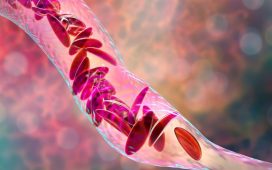Mediator pathway involves birth mode and Firmicutes species richness, especially Lachnospiraceae
THURSDAY, Feb. 22, 2018 (HealthDay News) — The correlation between maternal pre-pregnancy overweight and childhood overweight at ages 1 and 3 years may be mediated by birth mode and infant gut microbiota, according to a study published online Feb. 19 in JAMA Pediatrics.
Hein M. Tun, D.M.V., Ph.D., from the University of Alberta in Edmonton, Canada, and colleagues examined the correlation of birth mode with infant gut microbiota in an observational study involving 935 mother-infant pairs. Fecal samples collected at a mean age of 3.7 months were profiled with 16S ribosomal RNA sequencing to profile infant gut microbiota.
The researchers found that infants born vaginally to overweight or obese mothers were significantly more likely to become overweight at age 1 year, compared with being born vaginally to a normal-weight mother (adjusted odds ratio, 3.33); the risk was also increased for cesarean-delivered infants of overweight mothers (adjusted odds ratio, 5.02). At age 3 years, the risks were similar. The association between maternal pre-pregnancy overweight and childhood overweight was mediated by birth mode and infant gut microbiota (Firmicutes species richness, especially of the Lachnospiraceae family). Infants of overweight mothers had more abundant bacterial genera of the Lachnospiraceae family; however, the genera of Lachnospiraceae differed for infants delivered vaginally and via cesarean birth.
“This study found evidence of a novel sequential mediator pathway involving birth mode and Firmicutes species richness (especially higher abundance of Lachnospiraceae) for the intergenerational transmission of overweight,” the authors write.
Editorial (subscription or payment may be required)
Copyright © 2018 HealthDay. All rights reserved.








